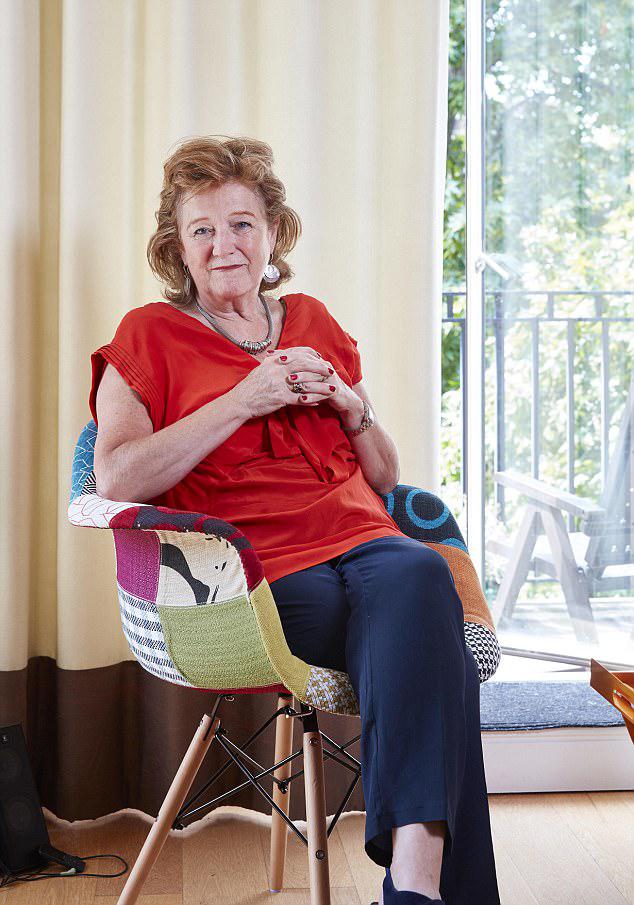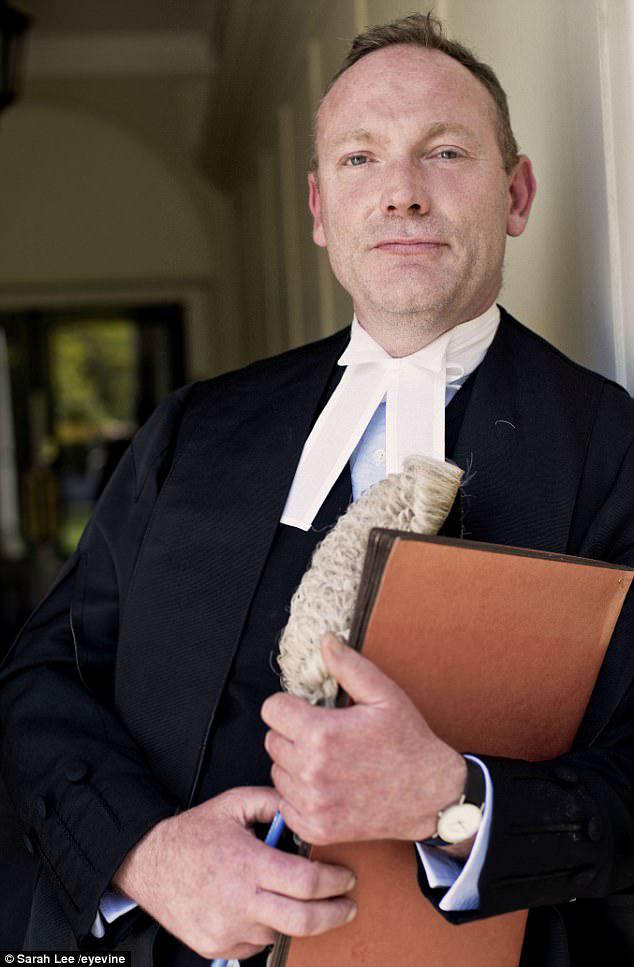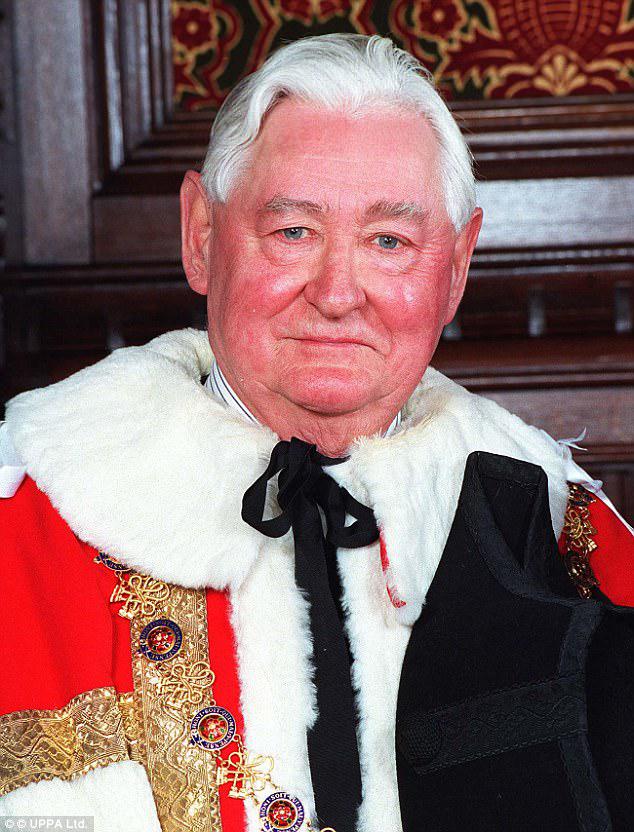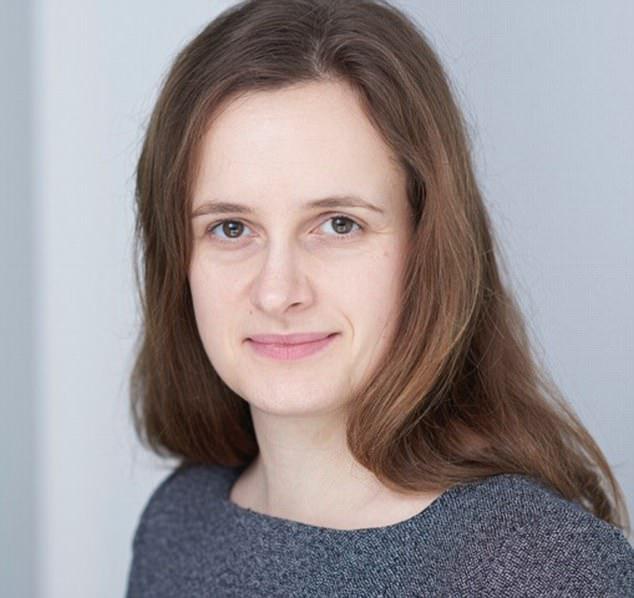|
Dark forces hoped the QC sex scandal would destroy my child abuse inquiry... and it almost did: Stunning admission by the fourth boss of the troubled historic paedophile probe
By David Rose
The head of the Independent Inquiry into Child Sexual Abuse has admitted that the sensational alleged sex scandal involving the inquiry’s own top lawyers came close to forcing its collapse – an outcome which, she says, would have been welcomed by the powerful institutions which regard it as a menace. In an exclusive interview with The Mail on Sunday, inquiry chairman Professor Alexis Jay said: ‘Strong vested interests would like to see this inquiry implode. ‘There are institutions which would prefer to see us fail, because we are such a threat.’ She presented an uncompromising defence of the controversial inquiry’s conduct, pledging it would deliver the first of a series of major reports next year. Established by then-Home Secretary Theresa May in 2014, the inquiry has a staff of 220 lawyers and investigators combing through thousands of documents and is holding hearings under 13 separate headings, including the Catholic and Anglican churches, schools, councils and children’s homes. Last year, it spent more than £20 million. It is set to end with a final overarching report and recommendations early in the next decade. Prof Jay said the furore surrounding claims – which have been refuted – that the inquiry’s former chief counsel, Ben Emmerson QC, sexually assaulted a colleague in a lift, put the inquiry in serious jeopardy and ‘for a brief period it felt like every other day there was a different kind of crisis’. What stung most were unfounded claims that she herself had covered up the internal scandal, by allowing Mr Emmerson to leave without being called to account. ‘It was terrible,’ Prof Jay said. ‘To have in some quarters my reputation and the inquiry’s reputation traduced was devastating – because it was so utterly untrue. ‘I’ve never covered anything up in my life, and nor indeed have my fellow panellists, and we all felt the strain of that kind of accusation being made. This is not because we want to perpetuate the institution of the inquiry. It’s because if it went under, there would be thousands, tens of thousands, of victims for whom this is their big chance to be heard, and for some of the injustices to be addressed.’ She added that if she had buckled under the pressure and resigned, that would probably have been the end of the inquiry, given that, following the resignations of Dame Elizabeth Butler-Sloss and Fiona Woolf and the forced resignation of her predecessor, New Zealand judge Lowell Goddard, she was the fourth person to chair it. ‘It was pretty damned tough. We all felt the strain of it,’ Prof Jay said. ‘I don’t know, but we all had a strong sense that if I or all of us resigned it would be hard to recreate something that was going to address the issues. Given the furore there had been about a fourth chair, the idea of a fifth one in such a short period seems a little unlikely.’ Last week, a report into the handling of the alleged sex scandal by Mark Sutton QC cleared Prof Jay, saying: ‘The suggestion that there was an institutional reluctance on the part of the chair and panel… to confront misconduct or abuse of power within the inquiry itself has, in my view, no foundation whatever.’ An earlier investigation by former Director of Public Prosecutions Sir David Calvert-Smith QC concluded ‘without hesitation’ that Mr Emmerson ‘did not commit any act of sexual assault’. From now on, Prof Jay said, the adjective ‘beleaguered’ – which used to accompany every mention of the inquiry by the media – was no longer applicable. ‘We’re not beleaguered any more,’ she said. Prof Jay, 67, who led the inquiry into child sex ‘grooming’ gangs in Rotherham, told this newspaper: lBy the time her predecessor was effectively fired by Home Secretary Amber Rudd last July, Judge Goddard’s position had become untenable – following months of weak leadership which left the inquiry without clear objectives or any plan for delivering them; lThe fear of being accused of racism led police and social workers in places such as Rotherham to suppress the fact that many child sex perpetrators there have been of Pakistani heritage; lThe incidence of child sex abuse worldwide seems to be increasing – apparently because of the internet; lThere is still little understanding of what drives some men to want to have sex with children – and one of the inquiry’s key aims is to conduct research that fills that gap; lUniting widely differing sources of abuse such as Rotherham, schools and organised churches are troubling common patterns and themes – the desire to turn a blind eye to abusers and to cover up their crimes. Prof Jay said she could not comment specifically on any of the 13 separate but related investigations the inquiry is conducting. These include the supposed Westminster VIP paedophile ring, where the key witness in a now-aborted police inquiry, known as ‘Nick’, has been discredited – having falsely accused figures such as the late former Home Secretary, Leon Brittan, former Tory MP Harvey Proctor, and Field Marshal Lord Bramall. Prof Jay said she was sure that false accusations were rare, pointing out that while some have suggested bogus claimants are driven by the lure of compensation, the average settlement paid to victims is a modest £14,000. But she added: ‘I don’t underestimate the seriousness of false accusations and we may look in the wider sense at some aspects of that later in the year… nobody is in any doubt that for those who have been the subject of false accusations, it must be a truly terrible experience.’ She said the inquiry would consider possible legal reforms which might both protect the innocent and make it easier for the guilty to be brought to justice. Unlike the inquiry’s previous chairs, Prof Jay is not a lawyer. Brought up by her mother in a working-class area of Edinburgh – her father was killed by an industrial accident when she was only two – she has a long background in social work, eventually becoming chief social work adviser to the Scottish government. She said this gave her advantages: ‘I understand why people would say a legal background is necessary, but I think it is equally important that somebody in this role has experience and knowledge of child protection and safeguarding issues.’ It was this which led to her being chosen to head the Rotherham inquiry, eventually concluding that at least 1,400 girls, most of them white, had been horrifically abused, mainly by men of Pakistani heritage. At least 24 were eventually convicted of serious crimes, with sentences of up to 35 years. The authorities had been told of what was happening for years but failed to act. Similar cases of organised abuse have come to light across the country, in places such as Rochdale and Oxford. Prof Jay said the racial dimension was one reason why it took so long for the Rotherham abuse to be dealt with. ‘The fear among professionals that front-line staff [could be] described as racist was real… managers and others would say, “when you are conducting training around these areas, don’t mention the ethnic origins of potential perpetrators”.’ Another was the ‘single party dominance’ (by Labour) of the local council and, with that, ‘the political reliance on certain communities for votes, for political support’. Meanwhile, police and others in authority relied on ‘inevitably male traditional community leaders as the conduit for what was going on, and were not talking to the women and girls in this community directly’ – and so failing to discover that some of the victims were Asian, too. But perhaps most shocking was Prof Jay’s discovery that social workers ‘had a habit’ of using euphemisms that masked the true issues. ‘They would suggest that children in care for whom they were responsible were making “lifestyle choices”, when the harsh reality was they were being raped. The police were just totally dismissive. Car crime and house breaking were the priorities, and somehow or other, children who were the victims were not considered worthy of being given proper protection by the law.’ When Judge Goddard left and Prof Jay, who had been appointed to the four-person inquiry panel in 2015, was asked to step in, she had no hesitation: ‘I regarded it as a civic duty.’ Almost her first act on accepting the job was to insist on being paid just half of Judge Goddard’s £355,000 salary. At the same time, she felt ‘relief’ that she had resigned, because under her, ‘there were a lot of frustrations and exasperations. We knew that unless there was some kind of change, we’d never make significant progress’. She revealed that despite the inquiry’s size and cost, ‘there was no work programme or plan or timetable for how we were going to deliver the important work of the inquiry.’ Now, however, there is a detailed road map. The next hearings – on children abused after being sent alone to Australia, Canada and elsewhere by well-meaning charities – start tomorrow, and this will be the subject of the first full report. More will soon follow. The timing of the final report is dependent on whether it becomes necessary to add new areas of investigation, such as abuse in sports clubs. The inquiry’s critics have claimed its remit is too broad, and its subjects too disparate, for meaningful conclusions or recommendations. Prof Jay disagreed, ‘because you can see across a number of investigations, patterns of behaviour that are very quickly recognisable. Even on the basis of investigative areas that don’t at first sight look similar, you can see these patterns’. Among them, she said, is the desire to cover up abuse and shield abusers. ‘There are similar ways that institutions behave, the bad institutions, in relation to these issues and that varies very little – whether it’s a public school or a local authority, the police or youth provision. Some faith organisations respond in very similar ways: they act to primarily protect the institution, rather than place the needs and the welfare of the children first.’ One example is the habit of shifting an abuser to another job: ‘Institutions have moved individuals on without confronting their abusive behaviour... potentially allowing other children to be abused in a similar fashion.’ The existence of such patterns convinced her that it would be possible not only to analyse why abuse has taken place but to make recommendations to reduce its future incidence. The need, Prof Jay said, has never been greater, although there is still little knowledge about what makes men paedophiles – something she hopes to remedy by commissioning research. ‘There are many factors, there will never be one, but the internet and social media have opened up a huge amount of scope for sex offenders against children. I think we need to understand a lot more about what drives it. The evidence that I’ve seen is that the internet is increasing demand worldwide.’ Prof Jay said the inquiry will produce clear, practical recommendations in plain English that will make a real difference: ‘They will not be of a somewhat general, unspecific nature: “Well, inter-agency communication could be improved”, all that stuff, I’m not interested in that.’ Previous inquiries had also made recommendations but they seem to have made no difference: hence, she said, her inquiry would also look at why such proposals had failed: ‘This is a once-in-a-lifetime opportunity to achieve the maximum impact.’ Small wonder the inquiry has made enemies. ‘Turning a blind eye takes many, many forms,’ she said. ‘There are some powerful institutions and individuals that don’t know what we know. Like it or not, they’re going to be called to account.’
|
.
Any original material on these pages is copyright © BishopAccountability.org 2004. Reproduce freely with attribution.



